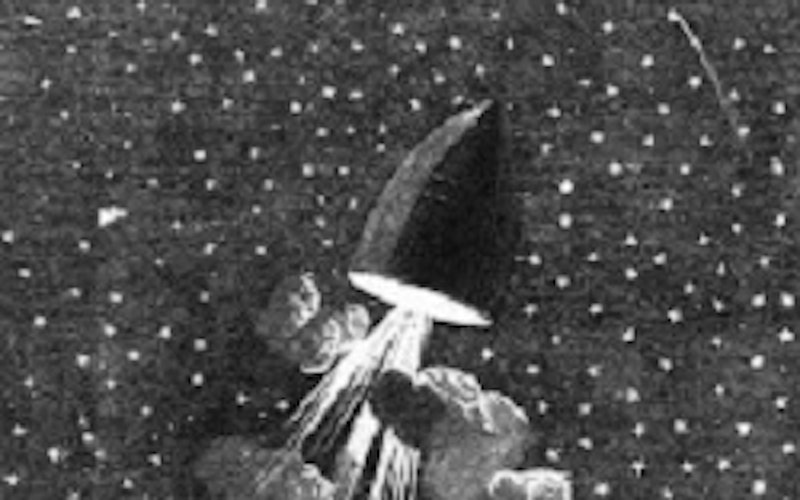
Culture At Large
Singing the praises of science fiction
Earlier this summer, NPR asked listeners to select the top 100 science fiction and fantasy novels of all time.
By some chance, the final list began and ended with the two most acclaimed Christian novelists of the twentieth century. J.R.R. Tolkien's "Lord of the Rings" trilogy came in at No. 1, while C.S. Lewis' Space Trilogy rounded out the list at No. 100. (Children's and young adult novels, such as "The Chronicles of Narnia," weren't eligible.)
There are other Christian writers on the list, perhaps most notably Walter M. Miller, Gene Wolfe (both adult converts to Catholicism) and 2009 Science Fiction Hall of Fame inductee Connie Willis, who is said to sing soprano in her church's choir. These writers, however, are the exception rather than the rule.
Right behind "The Lord of the Rings," at No. 2, is the comedic "Hitchhiker's Guide to the Galaxy" by the late Douglas Adams, an avowed atheist (Richard Dawkins' "The God Delusion" was dedicated to Adams). Other atheists on the list include Isaac Asimov, Arthur C. Clarke and Kurt Vonnegut, who once served as president of the American Humanist Association. Science-fiction pioneer H. G. Wells, whose novels "The Time Machine" and "The War of the Worlds" both made the list, earned a full chapter in G. K. Chesterton's "Heretics" for his pseduo-scientific Utopianism.
Other writers, meanwhile, embrace decidedly nontraditional beliefs. Ursula K. LeGuin has been a lifelong devotee of Taoism, even writing a translation of the Tao Te Ching. Perhaps furthest outside the mainstream, Alan Moore, whose graphic novel "Watchmen" was made into a 2009 movie, practices ceremonial magic and worships the serpent Glycon, who even Moore regards as fictional.
Considering how few of these writers share our core convictions, should Christians read science fiction and fantasy? I believe so.
First, these genres help us explore our God-given role as "sub-creators." In his essay "On Fairy-Stories," Tolkien defended fantasy because it enables us to honor and imitate God by exercising our creative vocation, using the raw materials created by God.
The creation of new worlds is a major appeal of science fiction and fantasy. Indeed, the top 10 novels in the NPR list actually comprise at least 23 books, because so many are multi-novel series. If sequels are included, the "top 10" represent more than 50 books altogether.
Second, they can help us see the real world in a fresh way. G. K. Chesterton defended fairy tales in his chapter "The Ethics of Elfland" in "Orthodoxy." Far from distracting us from the world, they rekindle the excitement of discovering the world when we were children: "[These tales] make rivers run with wine only to make us remember, for one wild moment, that they run with water."
Lastly, they create opportunities for theological reflection. It's one thing to debate issues in the abstract and another thing altogether to see them fleshed out in concrete terms. On the other hand, some issues may even be more clearly seen when removed from a realistic context, just as mathematicians use abstractions to solve problems more easily.
If you've never read science fiction or fantasy before, where should you start?
For fantasy, start with Tolkien's "The Hobbit" and continue on to "The Lord of the Rings." Virtually all subsequent fantasy either follows Tolkien's lead or consciously rejects it.
For science fiction, I recommend three accessible classics for starters. All three would generate great book club discussions:
C. S. Lewis, "Out of the Silent Planet": Before creating Narnia, Lewis explored questions of theology through the adventures of planet-hopping professor Elwin Ransom. In this, the first of Lewis' Space Trilogy, Ransom visits Mars and discovers that the Fall of Man had cosmic repercussions.
Isaac Asimov, "The Caves of Steel":This is an old-fashioned detective novel, except that one of the detectives happens to be a super-intelligent robot. As the story progresses, the main characters wrestle with what it means to be human and the nature of evil.
Ursula K. LeGuin, "The Left Hand of Darkness":LeGuin, like many so-called "soft" sci-fi writers, uses science fiction primarily as a setting to explore character and philosophical themes, rather than focusing on technical details of science. In this novel, an envoy from Earth is seeking to open diplomatic relations with a planet whose inhabitants are just like human beings, except they have only one gender, which can be either male or female. What would human society look like if there was no concept of gender?
What Do You Think?
- Beyond these books, what would be your suggestions?
- What can Christians draw from them?
Topics: Culture At Large, Arts & Leisure, Books, Theology & The Church, Faith, Theology, News & Politics, North America